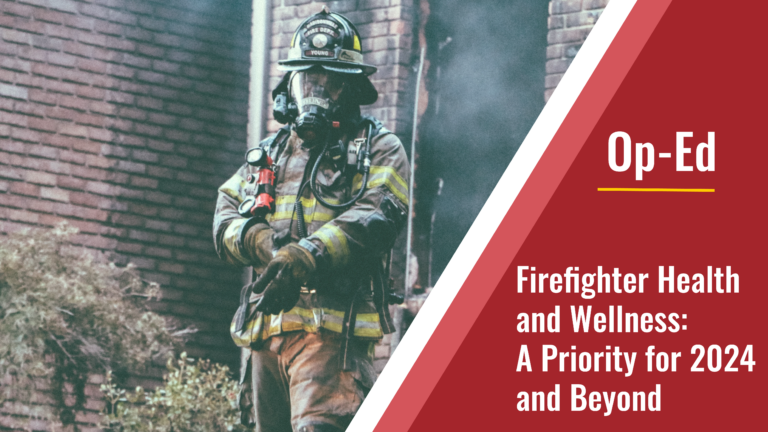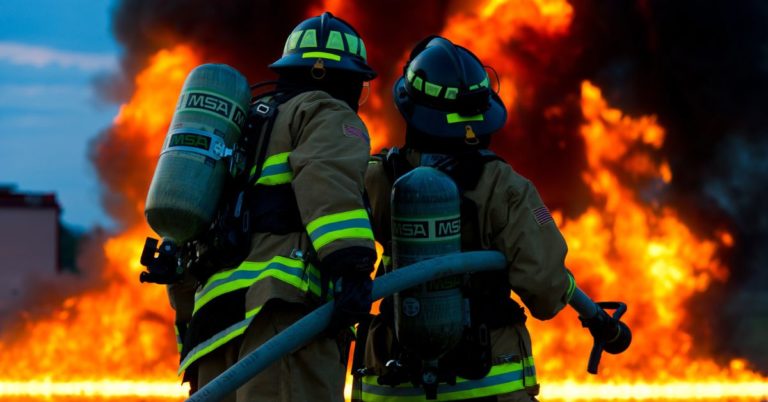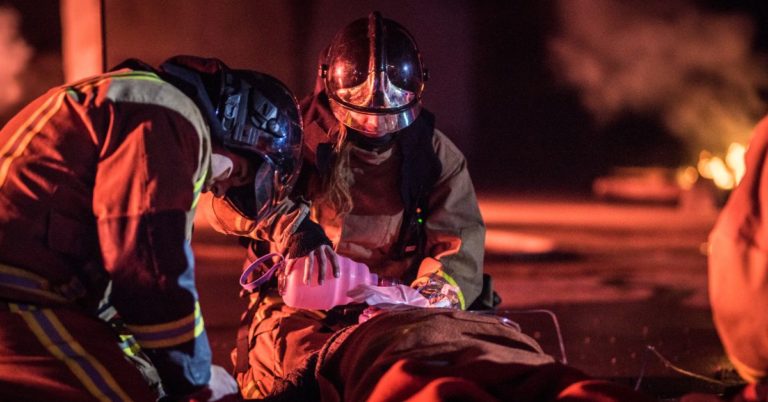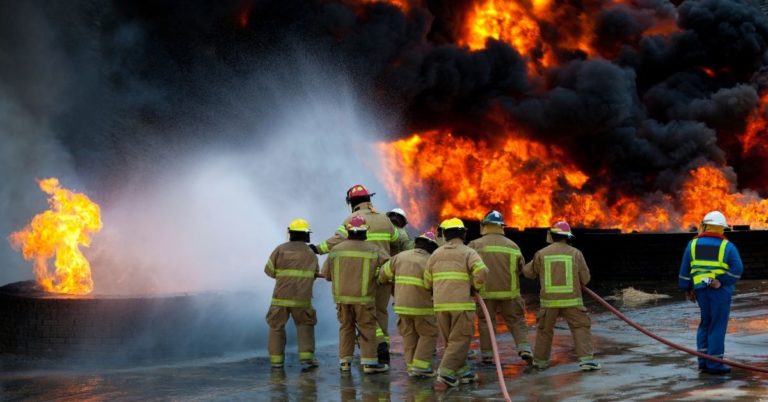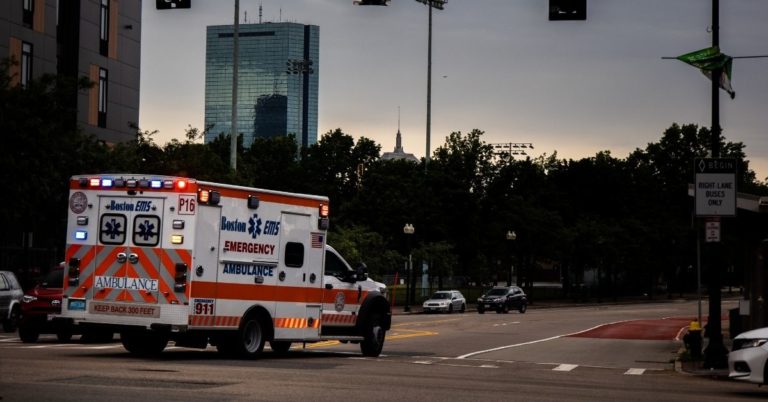It was Christmas Eve 2020 when Major Corey Britt was called to a fire in Oklahoma City. There was a 3-year-old burn victim on scene and for twenty minutes firefighters on scene waited for EMS services to arrive to transport the child to a hospital. But when they didn’t, Major Britt took matters into his own hands and transported the child himself on his engine to receive medical treatment. Officials say the delay was due to “Covid-19” and personnel issues. Then an investigation was opened on Major Britt.
According to Firefighter Nation, “Firefighters with knowledge of the disciplinary action told KFOR that Major Corey Britt had been relieved of his role as a Senior Company Officer at Station 34.”
“We don’t transport patients,” Oklahoma City Fire Chief Richard Kelley told KFOR. “That’s not our job.”
As noted in a statement by the Oklahoma City Fire Department in a statement issued on the subject, “Oklahoma City Fire Department personnel are prohibited by state statute and city ordinance from transporting patients.”
Major Britt received an undisclosed disciplinary action for his decision to intervene and get this patient the urgent care they needed.
But the case of Major Britt and the child burn victim who needed urgent care underscores a new reality faced by first responders and medical professionals in the world of Covid-19.
When the country shutdown as the Covid-19 pandemic infiltrated society, as professional sports stopped, restaurants closed, and industry went remote, it was first responders who answered the call to duty. But they were met with a situation in which they were provided inadequate supplies of PPE to protect against a deadly virus and dwindling resources to fund operations deemed essential to the public.
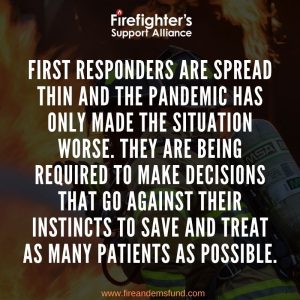
In the new world of Covid-19, the already perilous state of Fire & EMS funding is facing a catastrophe. The International Association of Fire Chiefs estimates that up to three billion dollars in potential funding for fire departments has been lost during the pandemic due to anemic tax revenues. This dire situation has created the world in which personnel like Major Britt must make snap decisions, no matter the personal and professional fallout that may ensue.
There is perhaps no other community in the United States that is grappling with the consequences of the virus on its emergency personnel and medical staff like Los Angeles is currently. In January, first responders were told not to transport any patient who in their judgement on scene would not likely survive.
6 ABC Los Angeles reports, “With no hospital beds available, ambulance crews in the county were given guidance not to transport patients with little chance of survival. And the patients who are transported often have to wait hours before a bed is available.”
Some accounts of the dire situation in Los Angeles report seeing ambulances wait for up to 8 hours waiting to unload patients. And at the high point of the current crisis people were dying every 15 minutes of Covid-19 in Los Angeles County alone, where EMS personnel were making up to 3,000 responses per day.
And incidents like the ones detailed here are occurring all across America.
In their positions would we leave the child to wait for treatment for their burns? Or would we act like Major Britt did? Would we be able to deny further care to those slipping away? These are the tragic decisions being forced on first responders every day in this new pandemic world.
First responders are spread thin and the pandemic has only made the situation worse. They are being required to make decisions that go against their instincts to save and treat as many patients as possible.
It’s a world where understaffed services, strict new protocols, and overwhelmed medical facilities are leading to a deterioration in the quality of services being provided to those facing an emergency. And both patients and the professionals attempting to care for them are suffering for it.
Image Credit: Photo by Roman Fox on Unsplash

